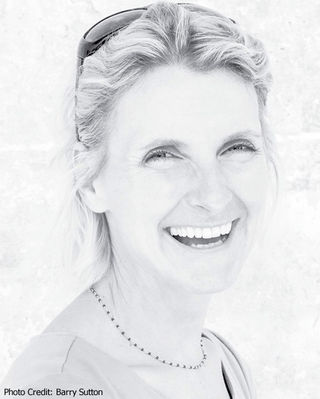Advice I Never Write Without
Advice I Never Write Without
Two pieces of crucial writing advice.
It takes a village to raise a writer.
I don’t just mean the nerdy English teachers who infected us with their love of language, or the librarians who provided us our early book fixes, or even the editors who so artfully disguise the moles, mustaches, and pockmarks in our manuscripts. There’s also the other writers who’ve generously shared their own tricks. I’m passing on the two best pieces of writing advice I’ve ever heard, one from Carolyn Hart and the other from Elizabeth Gilbert.
Carolyn Hart was speaking on a Malice Domestic panel in 2007. She was at the conference to accept the Lifetime Achievement Award, and over 200 fans packed the room. During the Q & A portion of the panel, one aspiring writer timidly raised her hand and asked Ms. Hart whether she should hold off on using all of her good ideas in her first novel because then what would she have left for her second one?
After some polite laughter in the room (which I didn’t understand until later—the question seemed excellent), Ms. Hart said, “Use your good ideas now. Your brain will make more. I promise.” Maya Angelou concurs in her famous quote: “You can't use up creativity. The more you use, the more you have.”
Don’t hold back when you write.
The second piece of advice came from Elizabeth Gilbert, who was speaking at a retreat I attended in the spring of 2015. A young author asked Ms. Gilbert how she knew which ideas to use when writing Eat, Pray, Love and which to leave out. The question wasn’t so much about using up all your good stuff as it was about being overwhelmed with potential directions and not knowing how to select what helped the story and what hurt it.
 “That’s easy,” Ms. Gilbert said. “Every book I write, I write to one
person. It doesn’t have to be someone close to me, and they don’t ever
have to know.”
“That’s easy,” Ms. Gilbert said. “Every book I write, I write to one
person. It doesn’t have to be someone close to me, and they don’t ever
have to know.”
The idea struck me as both simple and revolutionary: Which one person am I writing this book for? Who most needs to read it? What parts of the story must they know? What won’t matter to them? What tone must I strike? By selecting a one-person audience and writing to that person from the brainstorming stage to final edits, you will instinctively know what to include in your novel and what to leave out.
Use your good ideas now, and write your book to one person. You've got this.
I don’t just mean the nerdy English teachers who infected us with their love of language, or the librarians who provided us our early book fixes, or even the editors who so artfully disguise the moles, mustaches, and pockmarks in our manuscripts. There’s also the other writers who’ve generously shared their own tricks. I’m passing on the two best pieces of writing advice I’ve ever heard, one from Carolyn Hart and the other from Elizabeth Gilbert.
Carolyn Hart was speaking on a Malice Domestic panel in 2007. She was at the conference to accept the Lifetime Achievement Award, and over 200 fans packed the room. During the Q & A portion of the panel, one aspiring writer timidly raised her hand and asked Ms. Hart whether she should hold off on using all of her good ideas in her first novel because then what would she have left for her second one?
After some polite laughter in the room (which I didn’t understand until later—the question seemed excellent), Ms. Hart said, “Use your good ideas now. Your brain will make more. I promise.” Maya Angelou concurs in her famous quote: “You can't use up creativity. The more you use, the more you have.”
Don’t hold back when you write.
The second piece of advice came from Elizabeth Gilbert, who was speaking at a retreat I attended in the spring of 2015. A young author asked Ms. Gilbert how she knew which ideas to use when writing Eat, Pray, Love and which to leave out. The question wasn’t so much about using up all your good stuff as it was about being overwhelmed with potential directions and not knowing how to select what helped the story and what hurt it.

Source: Photo Credit: Barry Sutton/https://www.elizabethgilbert.com/bio/
The idea struck me as both simple and revolutionary: Which one person am I writing this book for? Who most needs to read it? What parts of the story must they know? What won’t matter to them? What tone must I strike? By selecting a one-person audience and writing to that person from the brainstorming stage to final edits, you will instinctively know what to include in your novel and what to leave out.
Use your good ideas now, and write your book to one person. You've got this.

